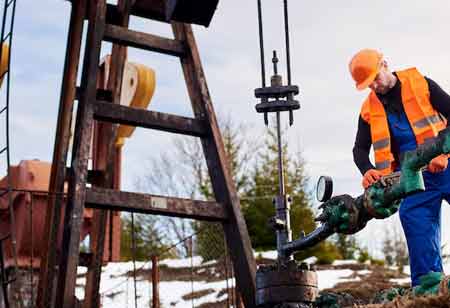Thank you for Subscribing to Environmental Business Review Weekly Brief
Revealing the Impact of Oil and Gas Drilling
Oil and gas drilling has significant repercussions, including the destruction of natural landscapes, disruption of wildlife habitats, and the potential to deter visitors.

By
Environmental Business Review | Friday, August 22, 2025
Stay ahead of the industry with exclusive feature stories on the top companies, expert insights and the latest news delivered straight to your inbox. Subscribe today.
Fremont, CA: Oil and gas drilling has a profound impact on natural landscapes and communities. These operations run continuously, contributing to pollution, driving climate change, disturbing wildlife habitats, and damaging public lands meant for the enjoyment of everyone.
For many years, the federal government has emphasized fossil fuel production over habitat conservation and recreational opportunities. Federal agencies provided the oil and gas industry with generous access to public lands, as well as tax breaks and subsidies. With this assistance, the industry encroached into too many of the country's wildlands.
Reducing fossil fuel drilling on public lands is vital to ensure a greener future. A fair transition to sustainable renewable energy sources, including solar and wind, is crucial for meeting individual energy needs while protecting both the environment and local communities. The oil spill solutions providers are pioneering advanced technologies to minimize environmental damage and enhance oil recovery.
Significant consequences of oil and gas drilling:
Oil and gas development can devastate wildlands: Infrastructure for oil and gas extraction can have a significant influence on wildlands. The construction of roads, infrastructure, and drilling sites necessitates the use of heavy equipment, which can ruin large areas of virgin wilderness. The harm is often irreversible.
The developments often clear significant areas of rangeland and vegetation needed by wildlife and humans. The complete recovery of these sites may take centuries, even if oil and gas companies ultimately decide to leave them behind. Furthermore, many fossil fuel operations are located in the West, where the environment is semi-arid with limited precipitation. A complete recovery would necessitate human intervention and a plethora of resources.
Drilling destroys wildlife habitat: Oil and gas extraction threatens animals. Drilling operations can interrupt animal communication, breeding, and nesting by making loud noises, moving humans, and driving vehicles. Powerlines, wellpads, fences, and highways can all fragment habitats for many species. However, animals embarking on this age-old journey have recently encountered several challenges, most notably increased activity in large natural gas fields. To reach forage that hasn't been destroyed, the pronghorn must negotiate large well pads and loud compressor stations. Future energy development farther south may have a significant impact on the herd's abundance.
Fossil fuel extraction drives tourists away: Hunters, fishermen, hikers, birders, and vacationing families visit the woods to enjoy nature in all of its glory. Oil tanks, power poles, loud compressors, and congested roads are not what people expect to see. Too much noise, air pollution, or destroyed scenery can ruin anyone's vacation. The unappealing consequences of oil and gas can eventually harm rural populations relying on tourism. Outdoor recreation is a significant economic engine, both locally and nationally.





